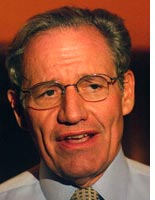My regular readers know that I'm hesitant to rag on other PD's, but every once and again, it's important to remember that not everyone in our hallowed business does business like we do. And so, I bring you the shameful tale of
Randy Smith who bid cheap and won the Public Defender contract in Grant County in Washington State.

Randy Smith
(Remember friends--though referred to as a PD, this guy is really an exemplar of why states need a real PD system rather than assigned counsel plans--or worse, county wide contract bidding (You can see my piece in Slate about this
here))
Now the fact that Grant County was an embarrassment is not news--everyone's known for ages that the Grant County "PD's" office was awful. (It's why the ACLU sued them....hey, was that you Vince?)
Anyway, as the Seattle Times points out, as part of the settlement Grant County agreed not to rehire two attorneys whose work was condemned by plaintiffs. But guess what?
"One of the two attorneys, Randy Smith, will apparently keep the court-appointed clients he already has — including Evan Savoie, a teenage murder defendant facing trial in April in one of the most highly publicized cases in Grant County history.

This is Evan--now 15.
Savoie and a co-defendant, Jake Eakin, are believed to be the youngest murder defendants to be tried as adults in Washington state since the 1930s. They were charged with stabbing and killing Craig Sorger, 13, on Feb. 15, 2003, in Ephrata.
Savoie and Eakin were 12 then and are 15 now. Eakin pleaded guilty last spring to being an accomplice to the killing and was sentenced to more than 14 years.
The case has received attention not only because of the defendants' ages, but because of concerns about whether they could get a fair trial. The case brings together a trial judge who has been censured for incompetence, a prosecutor convicted of a drug felony and a public-defense system that is among the state's worst.
Last year, two of Grant County's chief public defenders were disbarred. Both were found by the Washington State Bar Association to have solicited money from clients they were supposed to represent for free. Now, the Central Washington county has agreed to prohibit Smith and another attorney from entering into new contracts as public defenders.
Collectively, those four attorneys have represented thousands of felony defendants too poor to hire their own counsel.
"It appears that this kind of shoddy defense has been going on in case after case after case, for year after year," said David Zuckerman, a Seattle attorney who is handling the appeal of a former Smith client challenging his conviction.
In the class-action lawsuit, plaintiffs criticized Smith's work in two cases. They alleged that in one case Smith didn't know how to enter a simple document into evidence, and that in the other he misinformed a client about the consequences of a guilty plea, resulting in a sentence of up to life imprisonment.
Smith holds a public-defense contract that will expire at the end of this year. The settlement requires Grant County not to hire Smith again after that, but doesn't affect the court-appointed clients he already has, said LeRoy Allison, chairman of the Grant County Board of Commissioners.
"It applies to future contracts, not current or past," Allison said. "So the impact of that determination isn't for today's clients or yesterday's clients, but for future clients."
Allison said the prohibition doesn't mean that Grant County agrees that Smith and the second attorney are unsuited to do public-defense work. The condition was demanded by the ACLU of Washington, Allison said.
Support from colleague
Smith began representing Savoie in March 2004. Monty Hormel, a veteran Ephrata attorney in private practice, has also been appointed to represent Savoie. Hormel said Friday that Smith is still on the case — and that he hopes he stays on.
"I have found him to be an astute and excellent young attorney," Hormel said. "It's a pleasure to deal with him."
Grant County Prosecuting Attorney John Knodell also praised Smith, calling him "highly competent." (You know you're really in deep shit when the prosecutor calls you "highly competent"--it's probably the best argument I've heard for hanging it up.)
Anyway, when Smith received the Savoie case, he had been an attorney for fewer than four years. The Washington Defender Association, which provides training and support for public defenders statewide, offered to help find other attorneys to try the case. But Smith, in a Seattle Times story last year, said outside counsel wasn't needed.
"Is there something about my law degree that is somehow less because I have an office in Grant County?" he asked. "I find that a little offensive. Maybe I'm young and cocky, but I think I'm pretty good."
The other attorney the county has agreed not to rehire is Ted Mahr, a former public defender who no longer holds a contract. Mahr said Thursday that nobody had informed him that the county would not again hire him. He defended his work, saying, "I work very hard and do a good job for my clients."
Sweeping changes
The class-action lawsuit was filed last year by the ACLU of Washington and Columbia Legal Services. It alleged Grant County's public defenders were overworked, unqualified or laboring under contracts that punished them financially for spending time on cases.
The two sides settled this month, with Grant County agreeing to sweeping conditions, including a cap on attorney caseloads. The settlement must still be approved by a judge.
In court documents, plaintiffs criticized Smith's work on behalf of Ramon Murillo, charged last year with the rape of a child. The prosecution's case hinged largely on a statement Murillo made to Moses Lake police.
A detective said Murillo confessed. But the most damning admissions he attributed to Murillo came only after police turned off a tape recorder. Murillo later denied confessing.
When plaintiffs' lawyers asked Smith why he didn't challenge the detective's account, Smith said he trusted the detective to tell the truth. Smith said he and the detective were personal friends who attend the same church and play basketball together. (Oh god, this makes me want to slit my wrists.)
Murillo pleaded guilty to first-degree child molestation. He was initially sentenced to a maximum of about five years, only to have prison officials notify Grant County that Murillo's conviction carried a mandatory sentence of five years to life in prison, according to court records.
Zuckerman, Murillo's appellate attorney, said the prosecutor, judge and Smith all failed to realize that Murillo's plea would result in a possible life sentence.
When notified of the mistake, the court should have allowed Murillo to withdraw his plea or seek other relief, Zuckerman said. Instead, the judge hit Murillo with five years up to life."
And we wonder why, with stories like this around, our clients are suspicious of us...












 This is Evan--now 15.
This is Evan--now 15.














